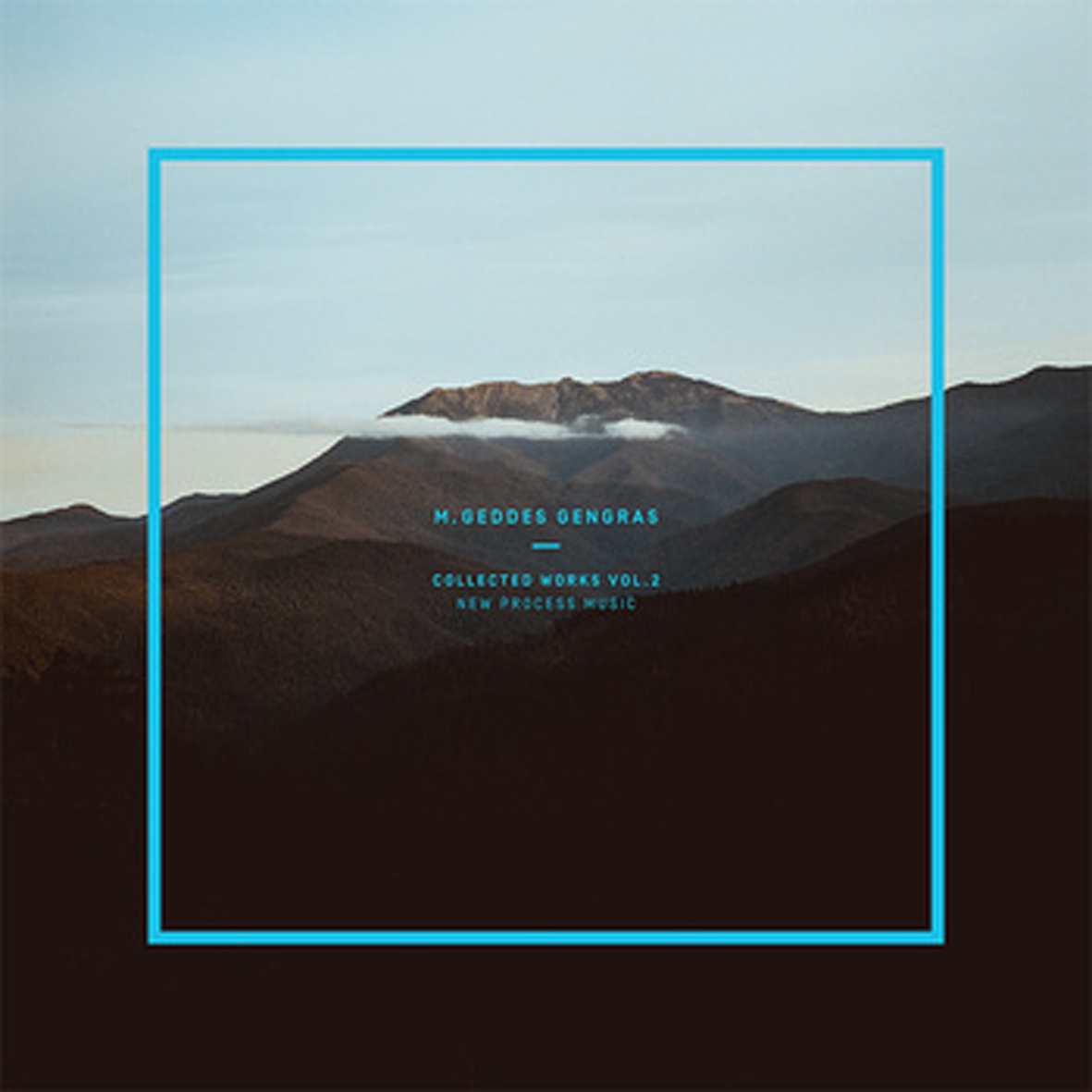M. Geddes Gengras, "Collected Works Vol. 2: New Process Music"
 The first volume of Gengras's Collected Works was unexpectedly one of my absolute favorite albums of 2013, so I was looking forward to this follow-up with a great deal of anticipation.  As it turns out, my expectations were way off the mark, as New Process Music is nowhere near as great as its illustrious predecessor.  However, it is equally worth noting that it is not trying to be: this album is a different beast altogether.  While The Moog Years captured Gengras at his haunting, long-form compositional peak, New Process Music instead documents a series of brief experiments in harnessing the squiggling, burbling chaos of a small Eurorack modular synth.  The results are certainly interesting, but anyone seeking something beautiful or sublime should definitely look elsewhere.
The first volume of Gengras's Collected Works was unexpectedly one of my absolute favorite albums of 2013, so I was looking forward to this follow-up with a great deal of anticipation.  As it turns out, my expectations were way off the mark, as New Process Music is nowhere near as great as its illustrious predecessor.  However, it is equally worth noting that it is not trying to be: this album is a different beast altogether.  While The Moog Years captured Gengras at his haunting, long-form compositional peak, New Process Music instead documents a series of brief experiments in harnessing the squiggling, burbling chaos of a small Eurorack modular synth.  The results are certainly interesting, but anyone seeking something beautiful or sublime should definitely look elsewhere.
Unlike The Moog Years, which collected pieces from a number of Gengras's cassette releases, the 8 pieces that comprise New Process Music are all essentially previously unreleased (though Gengras did make them available digitally at one point).  Also, the majority of these pieces were recorded during live shows spanning 2011 through 2012, though they do not sound live.  Essentially, these pieces were all patches that he devised for live performances (enhanced by tape echo), but the raw recordings were all later tweaked and further processed in his studio.  The post-production enhancements generally seem to be peripheral or textural in nature, though "Ricochet" unexpectedly features a distant-sounding interlude of Arvo Pärt’s "Für Alina."  Consequently, the meat of New Process Music is literally just variations on some endlessly repeating patterns: these are Gengras's first "pure" modular synth compositions.
Admittedly, Gengras conjures up some fairly cool patches, particularly with the longer pieces.  The 8-minute "Slider," for example, augments its relentless early Tangerine Dream-style pulse with some squirming and trilling higher notes and a low roar that sounds like it features some buried field recordings.  The twinkling and throbbing "The Last Time We Were Here" again reminds me of early Tangerine Dream, but seems more like the crescendo (and then coda) of one of their heavier pieces.  Another piece that works quite well is the closing "Pure (Reprise)," as it seems much more composed, relaxed, and melodic than anything else on the album.  It is essentially built upon a bittersweet series of swelling notes, but Gengras does a fine job of enhancing them with well-placed sizzles and echoing afterimages.  For someone like me who is not at all a modular synth enthusiast, "Pure (Reprise)" is by far the best piece on the album, as it is the one that feels most like a complete, thoughtfully constructed composition.  I am probably not the target demographic here though, as it seems like New Process Music’s true raison d’être is to delight synth fans with the way that Geddes wrestles with (and willfully causes) entropy.
Ultimately, New Process Music is less a disappointment than it is an album that is just not for me.  While The Moog Years admirably transcended the limitations of the synth revival genre, this album whole-heartedly embraces and embodies them.  It certainly suffers from its severe constraints, but those constraints are all completely by design, so I can hardly gripe about the outcome.  My sole meaningful critique is that most of these pieces lack the momentum and length needed to maximize the power of Gengras's many swooping and blurting variations.  These songs are mostly roiling and untamed right out of the gate, so there is never any real drama or feeling that anything is at stake, whereas Geddes's somewhat similar (but beat-driven) Personable project at times feels like a speeding train about to derail.  These pieces just kind of start and then eventually stop without any rewarding arc, just a bunch of cool technical feats and twists.  That said, New Process Music is still a vibrant and adventurous experiment, so modular synth enthusiasts will probably find a lot to love here, which makes perfect sense: this album is very much just for them.
 



